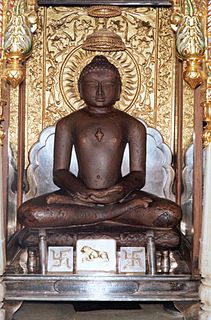A Quote by Rajneesh
Attachment is the root cause of all misery - and our mind is such that it starts clinging to each and everything. It starts becoming identified, attached, it does not know how to keep a distance; hence the misery.
Related Quotes
To remain attached to the temporal, to the changing is to remain within the world of misery because the temporal will be taken away. You have invested so much in it but one day everything is taken away. Then it is natural to feel miserable. Misery is rooted in attachment to the body and bliss is rooted in non-attachment to the body; hence all the great masters have been teaching methods and means of non-attachment, of getting disidentified with the body, with the mind, with everything surrounds you, and of just remaining a pure witness. That's what we are: pure witnessing, pure awareness.
Everything comes out of nothingness and goes back into nothingness. Hence there is no need for attachment, because attachment will bring misery. Soon it will be gone. The flower that has blossomed in the morning, by the evening will be gone. Don't get attached; otherwise in the evening there will be misery. Then there will be tears, then you will miss the flower. Enjoy while it is. But remember, it has come out of nothing, and it will go back to nothing. And the same is true about everything, even about people.
If you get attached, then it becomes an obsession. If the person is not there, you are unhappy. If you miss the person, you are in misery. And attachment is such a disease that if the person is not there you are in misery, and if the person is there you are indifferent. Then it is okay; it is taken for granted. If the person is there it is okay - no more than that. If the person is not there, then you are in misery. This is attachment.
If you have desires, try to look - are those desires the cause of your misery? Nobody wants misery, but nobody is willing to drop the desires - and they are together, they cannot be separated. This is one of the greatest insights that has come from all the enlightened people in the world - that desire is the root of all misery, and desirelessness is the cause of all that is beautiful and blissful.
Our misery comes, not from work, but by our getting attached to something. Take for instance, money: money is a great thing to have, earn it, says Krishna; struggle hard to get money, but don't get attached to it. So with children, with wife, husband, relatives, fame, everything; you have no need to shun them, only don't get attached. There is only one attachment and that belongs to the Lord, and to none other.
If attachment is the conditioning factor, then non-attachment will become the unconditioning factor. If expectation leads you in misery, then non-expectation will lead you into non-misery. If anger creates a hell within you, then compassion will create a heaven. So whatsoever the process of misery, the reverse will be the process of happiness. Unconditioning means you have to understand the whole knotted phenomenon of human consciousness as it is.




























